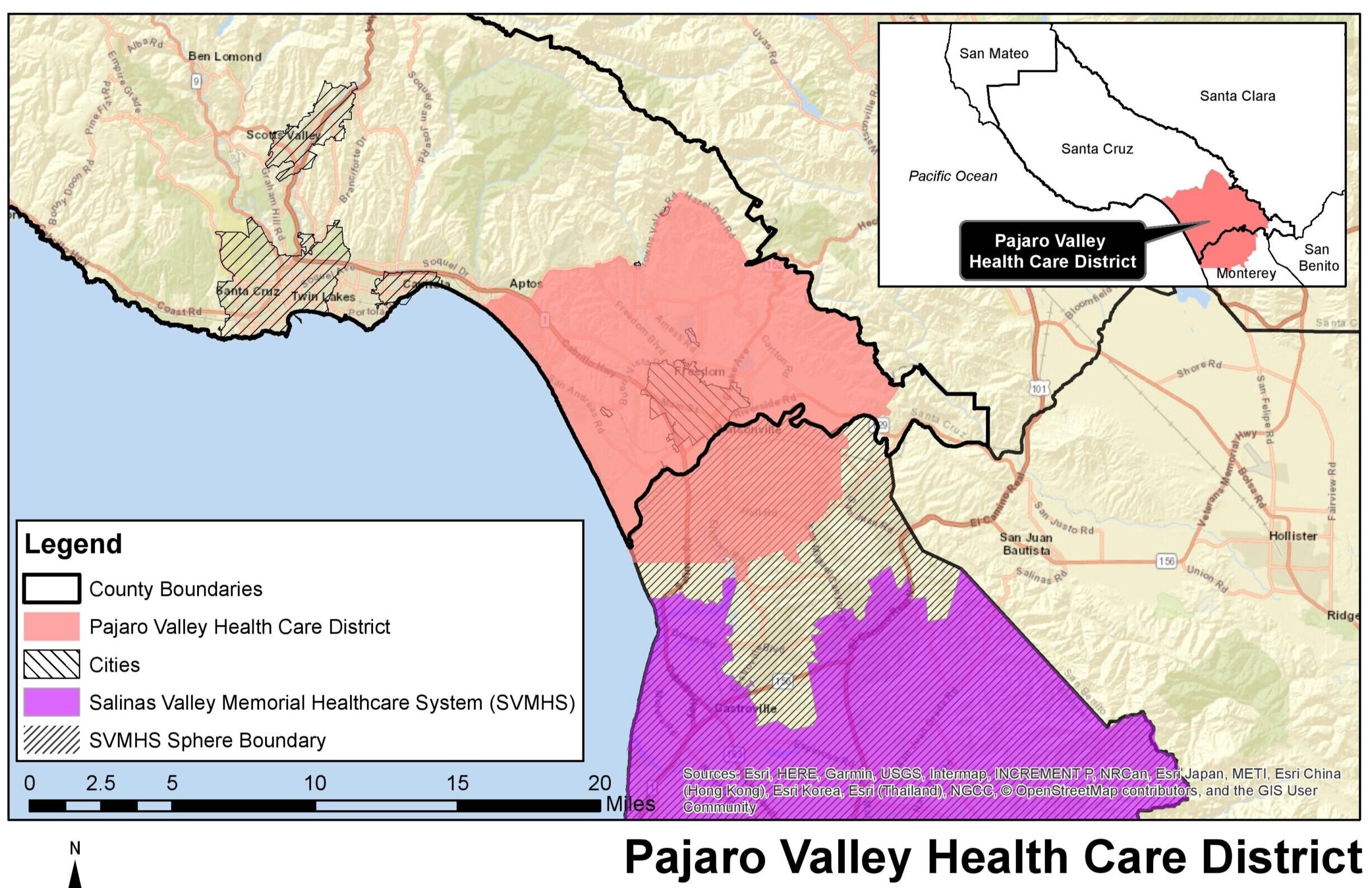What is Measure N?
Measure N would allow the Pajaro Valley Health Care District to issue $116 million in bonds to buy the land at Watsonville Community Hospital and make improvements. Property owners in the district would pay $24 per $100,000 of assessed property value annually for 30 years or until the bond is paid off.
The measure will appear on ballots of voters in the Pajaro Valley Health Care District. The district spans from Aptos to Las Lomas in Monterey County, with boundaries similar to the Pajaro Valley Unified School District.
The measure needs more than two-thirds of the vote to be adopted.

Pajaro Valley Health Care District’s northern border includes Rio Del Mar Boulevard, Freedom Boulevard, Browns Valley Road, Hazel Dell Road and the Santa Cruz County line. The district formed in February 2022 and includes parts of Santa Cruz and Monterey counties. (Local Agency Formation Commission)
What would Measure N do?
If Measure N is adopted, property owners in the Pajaro Valley Health Care District would pay an annual tax of $24 per $100,000 of assessed property value for about 30 years until the bonds are paid off
The Health Care District would issue $116 million in bonds for the health care district. The money legally must be spent on facilities improvements, and it is expected to pay for the hospital property and buildings, building repairs and upgrades and new equipment. The bonds would be repaid over 30 years by the tax on property owners within the district.
Measure N ballot text: To improve the quality of healthcare at Watsonville Community Hospital; expand/renovate the emergency room; upgrade imaging systems including x-rays, MRI and CT scanners; purchase the hospital property; modernize healthcare facilities to expand services; replace roofs/plumbing; shall Pajaro Valley Health Care District’s measure authorizing $116,000,000 in bonds at legal rates, generating approximately $6,800,000 annually at an average rate of $24 per $100,000 of assessed valuation while bonds are outstanding, with citizen oversight and all funds under local control, be adopted?”
What does a “yes” vote mean?
A “yes” vote would authorize an annual property tax within the Pajaro Valley Health Care District to fund $116 million in bonds.
What would a “no” vote mean?
A “no” vote would not authorize a new property tax or bond.
Thing to consider about Measure N
- Background on Watsonville Community Hospital.
- How the tax would work.
- What the tax would fund.
More information
- Resolution for Measure N
- Impartial analysis of Measure N
- Pajaro Valley Health Care District
- Register to vote in Santa Cruz County
- Campaign finance records for Measure N
Related Santa Cruz Local stories
- Bond measure on March ballot would benefit Watsonville hospital — Nov. 30, 2023
- Watsonville hospital moves closer to acquisition — July 20, 2022
- Watsonville Community Hospital acquisition money approved — Jan. 25, 2022


